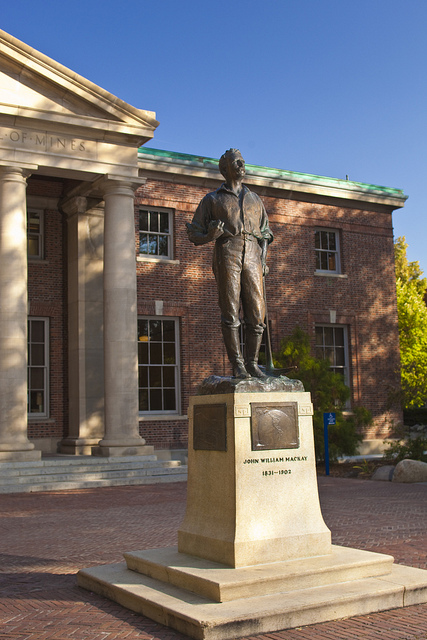Bachelor of Arts in Philosophy
The University of Nevada, Reno offers a Bachelor of Arts in Philosophy where students hone analytical and communication skills while exploring the nature of reality and human experience. This program introduces students to logic, the history of philosophy, metaphysics, epistemology and the philosophy of science. Students engage with profound questions about reality, knowledge limits, the mind in nature, the good life and ideal societies. In doing so, students develop analytical and critical thinking skills that prepare them for diverse and exciting career opportunities.
Bachelor of Arts in Philosophy (Ethics, Law and Politics emphasis)
The Department of Philosophy also offers a Bachelor of Arts in Philosophy with a focus on ethics, law and politics. This program equips students with essential skills in critical thinking and persuasion while exploring practical issues in value theory. This philosophy major is tailored for those interested in philosophy with a strong emphasis on ethics, legal and political philosophy. While still covering core areas in philosophy, this specialization prioritizes value theory, benefiting students pursuing careers in law, government or civic-oriented professions.
- Bachelor of Arts in Philosophy (Ethics, Law and Politics Specialization, B.A., Degree Page
- Bachelor of Arts in Philosophy (Ethics, Law and Politics Specialization, B.A., Course Catalog
B.A./M.A. Accelerated Program, Philosophy
The accelerated B.A./M.A. program in Philosophy is intended to encourage outstanding students in the Philosophy B.A. program at the University of Nevada, Reno to continue on to pursue an M.A. degree in Philosophy at the University over a shorter period of time. Students enrolled in the accelerated program can potentially obtain either a Plan A (Thesis) or Plan B (Professional Paper) Philosophy M.A. degree by the end of their fifth year of study. The accelerated program allows qualified undergraduate students (who typically apply in their junior year) in Philosophy to take up to 12 credits of graduate-level courses and apply those to their undergraduate degree. They may also apply the same graduate credits to a graduate degree in Philosophy at the University if they apply and are admitted to the program.
Questions? Please contact the Director of Graduate Studies, Professor Benjamin Young.
Minors in Philosophy
A minor in philosophy is an excellent way to build and sharpen your professional skills, or explore interests beyond the parameters of your major. Students can choose between (1) the general track, (2) the ethics, law and politics specialization, or (3) science, mind and philosophy. A minor in philosophy can open doors to a number of career opportunities or graduate schools (such as law or medical school) that value critical thinking, innovative problem-solving and superior communication skills.
Catalog page for available areas of emphasis:
